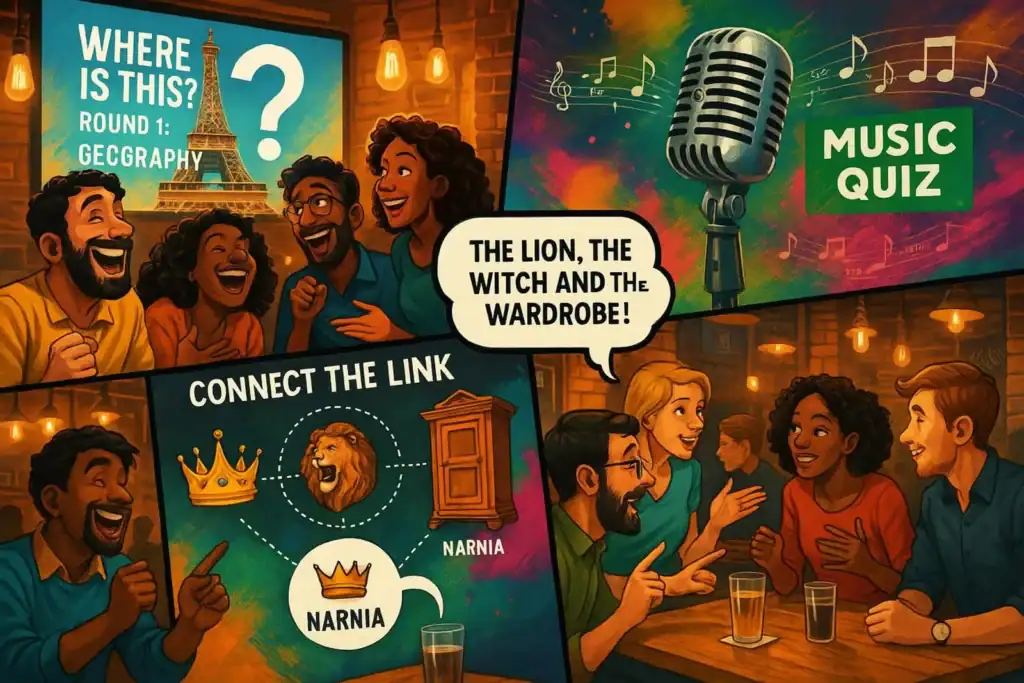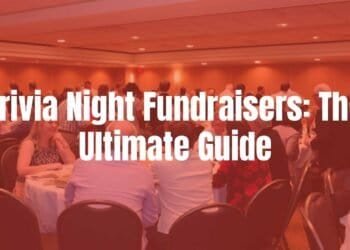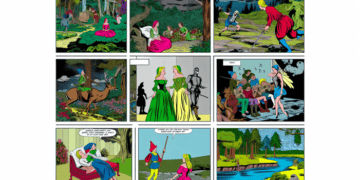Running a good pub quiz is about far more than reading out trivia. You’re creating a night of laughs, teamwork, and light competition that people remember. The best nights mix smart questions, a friendly setting, and smooth hosting to turn a simple get-together into something special. Pub quizzes have been doing that since they started in the UK in the 1970s.
From the moment people arrive to the final score reveal, every choice you make affects the result. This guide walks you through how to plan and host a quiz that entertains and keeps people coming back.
What Makes a Pub Quiz Successful?
A great pub quiz isn’t just a knowledge test; it’s a social night built on energy and a welcoming vibe. You need the right mix of challenge and fun so both trivia fans and casual players feel included and have a fair chance.
The best moments happen when teammates chat, debate, and laugh together. Those shared “aha!” answers make the night feel like a win for everyone. People should leave happy, connected, and ready for the next quiz.
Key Ingredients for an Engaging Pub Quiz Night
Good planning plus lively hosting is the winning combo. Questions are the core. Mix topics and difficulty so people talk, guess, and learn without getting stuck or bored.
The host matters a lot. A warm, clear, and funny host keeps the pace steady and the room in good spirits. Set simple rules to avoid arguments. Keep the night moving with a clear schedule and short breaks so players stay comfortable and focused.
Which Pub Quiz Format Works Best?
Your format is a big choice that shapes everything else. With new tech and changing habits, you have more options now than in the past. Pick what fits your crowd, your tools, and the mood you want.
Both in-person and online formats work well. Each has benefits and trade-offs. Decide early to make planning easier and the experience smooth for everyone.
Digital vs. In-Person Pub Quiz Options
Classic quizzes happen face to face in a pub, with chatter, clinking glasses, and instant reactions. That direct social feel is hard to beat.
In 2020, many quizzes moved online through platforms like Zoom and Slack. Online events can reach more people and let anyone join from home. If it’s tough to fill a room, going online can help. For Zoom, set the meeting in advance and share links and passwords. Keep in mind Zoom’s 40-minute group limit, which makes a handy break. For Slack, create a free workspace and invite your players. Whatever you use, make sure everyone knows the basics and that you have a good camera, mic, and stable internet.
| Format | Pros | Cons |
|---|---|---|
| In-person | Stronger social vibe; easy to read the room; great atmosphere | Limited by venue size; travel needed; noise can be a factor |
| Online | Wider reach; easy to join; flexible | Tech hiccups; less natural crowd energy; device know-how required |
Team-Based or Individual Competition?
Most pub quizzes lean toward team play, usually 2 to 6 people. Teams spread the pressure, boost social fun, and let different strengths shine. It’s less stressful for newcomers and keeps the night friendly.
Solo play can work, but teams are the standard. Set clear minimum and maximum team sizes to keep things fair.
Themed Rounds and Unique Quiz Styles
Themes keep things fresh. General knowledge is always good, but themes like Film & TV, Music, Sports, History, or seasonal nights (Christmas, End of Year) add flavor. Niche themes like 90s, Disney, Harry Potter, or Lord of the Rings can be big hits if they match your crowd.
Vary formats too. Try picture/video rounds (zoomed-in objects or famous faces), music rounds (name the song and artist), “connect the link” rounds, or “Guess Who?” rounds that tell a life story without the name. Mix it up so more people get chances to shine.

How to Plan and Prepare the Best Pub Quiz
Success starts with careful planning and prep. What happens behind the scenes makes the night feel smooth and fun. From the venue to the host, each step builds the base for a great quiz.
Don’t skip the planning. A ready quizmaster and a well-set space can turn a good idea into a great night that brings people back.
Choosing the Right Venue and Equipment
“Pub quiz” doesn’t have to mean pub only. Restaurants, microbreweries, and wine bars can work too, especially on slower nights (Sunday to Thursday). If you know an owner or manager, start there. If not, send a simple pitch that explains how a quiz can bring guests in. Trivialogy has started quizzes in many non-traditional spots with success.
Once you have a venue, think gear. A microphone and decent sound system are important, especially for bigger groups, so everyone hears the questions. If you run visual rounds, use a TV or projector with PowerPoint or Google Slides. Bring plenty of answer sheets, scrap paper, and pens. If you’re going digital, make sure players have the apps needed and a solid internet connection. Test all media and cables before the event to avoid last-minute tech issues.
Selecting a Charismatic Host or Quizmaster
The host sets the tone. If public speaking isn’t your thing, ask someone who’s comfortable with a crowd. They should be clear, friendly, and good at keeping people engaged.
Stick with one quizmaster if you can, especially for a weekly or monthly event. Regulars like familiar faces. Give your host what they need: mic, sound control, a laptop for slides, and water or tea to keep their voice in shape.
Setting the Date and Timing for Maximum Attendance
Smart timing helps turnout. Offer nights that are usually slower for the venue, like Sunday to Thursday. That helps the venue and gives you more space and attention. Share start and end times clearly so people can plan, including anyone who needs childcare.
An 80-question quiz usually takes 1.5 to 2 hours, including a short break. Aim for 90-120 minutes from first question to winners. Keep to the schedule; nobody wants a quiz that drags. Add short breaks so players can grab drinks, use the restroom, and reset.
Deciding on Entry Fees and Prizes
Fees and prizes can shape turnout and excitement. While you can run a quiz without prizes, even small rewards make people happy and encourage repeat visits.
Work with the venue on prizes like drink or food vouchers, percentage discounts on tabs (e.g., 30%/20%/10% for 1st/2nd/3rd), small cash discounts, or bar swag (T-shirts, branded glasses). For fundraisers, charge per team or per player and let the sponsor handle payment or donations. Monthly prizes based on points over time keep people coming back. Post a photo of the winning team on social media or the venue page-recognition goes a long way.
How to Create Compelling Pub Quiz Questions
Questions are the heart of your quiz. Good questions mix wit, fairness, and challenge. Aim for ones that spark talk and give players those “aha!” moments without leaving them annoyed.
This section looks at how to write questions that hit that sweet spot and keep people engaged and chatting with their teams.
Balancing Question Difficulty
Variety is key, especially with difficulty. Too hard frustrates; too easy bores. A handy mix for every 10 questions is 3 easy, 4 medium, and 3 hard. That way everyone gets wins and good challenges.
If you’re unsure, lean a bit easier rather than too hard. Aim for questions that start discussion, not just “know it or don’t” facts.
| Per 10 questions | Easy | Medium | Hard |
|---|---|---|---|
| Suggested mix | 3 | 4 | 3 |
Choosing Interesting Quiz Topics and Categories
Spread your topics wide to reach more people. Along with General Knowledge, include Music, Film & TV, Sports, History, Science, Geography, Pop Culture, and current events. Local questions about nearby places or people add a nice touch.
If your quiz has a theme, keep questions inside that theme but vary the sub-topics. For example, a 90s night could cover music, movies, fashion, and major events. Ask players what they want to see in future quizzes to boost buy-in.
Sample Question Types for Pub Quizzes
Mix question styles to keep things lively:
- Multiple Choice: Helpful for tougher questions so teams have a fighting chance.
- Picture/Video Rounds: Identify zoomed-in items, celebrities, or landmarks.
- Music Rounds: Play a short clip; name song and artist, finish the lyric, or guess the year.
- Connect the Link: Show items with a shared theme and ask for the link.
- Guess Who? Describe a real person’s life without the name; teams guess the person.
- True or False: Quick and fun for fact checks.
- Estimation: Ask for a number; closest answer wins (e.g., days in a leap year).
Write questions with only one correct answer. If a question could have more than one valid answer, replace it to avoid disputes.
Mistakes to Avoid When Writing Quiz Questions
Common traps include making questions too obscure or too narrow. A few tough ones are fine, but too many turn people off. On the flip side, all-easy questions feel flat.
Watch for unclear wording. Make questions short and clear, and stick to answers that are definite. Keep facts up to date-current events age fast. Double-check all answers. A wrong “official” answer can lead to long arguments and lost trust.
What Rules and Scoring Systems Should Be Set?
Clear rules and fair scoring keep the night smooth. Without them, confusion and arguments can spoil the mood. Share your rules early so everyone knows how to play and what to expect.
Think of rules as the frame that holds the game together and lets the friendly competition shine.
Preventing Cheating and Keeping It Fair
The most important in-person rule is “no smartphones.” Say it up front, maybe with a joke about going old-school for the night. You can’t police this well online, but in a pub you can watch for quick peeks at Google.
Be firm but fair. If someone checks a text by accident, a small penalty (like minus five points) sends a clear message. Set team size limits and a deadline for turning in answer sheets. Trivialogy prints rules at the top of answer sheets, which helps everyone see them.
Recommended Point Systems and Tiebreakers
A simple method works best: one point per correct answer. You can add extras like bonus points for certain rounds or partial credit for close answers, but keep it simple to score. If a name is needed, say if a first name alone counts or if you need first and last for full points.
Have tie-breakers ready. Use a tough question or an estimation where the closest wins. Tell players you have tie-breakers before reading final scores. You can score the sheets yourself to avoid disputes, or have teams swap papers if you trust the group. If you spot a mistake in your answer key, own it and give full points for that question-good sportsmanship builds trust.
How to Run the Pub Quiz Smoothly on the Night
Even with great questions and a solid venue, the way you run the night matters. Good pacing keeps energy high and makes the quiz feel fun from start to finish. Hosting is more than reading questions-it’s about flow, crowd contact, and building excitement.
Think of yourself as a director lining up moments for a great show. Planning meets delivery here.
Pacing the Rounds and Maintaining Momentum
Keep a steady rhythm. Don’t rush, but don’t stall. A new question about every two minutes works well. Read each question at least twice so everyone hears it. If you don’t have a mic, move around and project your voice.
Use short breaks between rounds. People can grab drinks, use the restroom, and stretch. That keeps focus and energy up. Stay upbeat; walk the room, answer quick rule questions, and help with clarifications.
Engaging Participants Between Rounds
Breaks can add fun. Play music, offer a small “bonus question,” or share a quick story related to a past question. Trivialogy sometimes posts a tough question on Facebook in advance and gives a bonus point to anyone who looked it up before the quiz.
Try a fast mini-game or a spot prize for a quick question. Little extras keep the buzz going and avoid quiet lulls.
Announcing Scores and Winners
End strong. After the final question, give teams about five minutes to turn in sheets. Before naming winners, read out the correct answers. People enjoy checking how they did and reacting together.
Share scores from lowest to highest. Some hosts even use a standing “fake team” in last place so no real team has to. Build suspense for the top teams, and state the prizes before naming 1st, 2nd, and 3rd. If there’s a tie, use your tie-breakers. Cheer the winners and snap a photo to post online-they’ll love it.

How to Promote and Grow Your Pub Quiz Event
Even the best quiz needs people in the seats. Once your format and hosting are set, spread the word. Good promotion and a sense of community turn a one-off into a regular hit.
Go beyond a simple announcement. Create buzz so your quiz becomes a fixed date on people’s calendars.
Tips for Marketing Your Pub Quiz Locally and Online
Use both print and digital. At the venue, make small fliers for counters, menus, and handouts. Put full-page posters on local bulletin boards in coffee shops, supermarkets, and gyms. If the venue agrees, add a “10% off for first-time players with this ad” coupon.
Online, start a social media page for the quiz or partner with the venue’s page. Post reminders, themes, and a pre-quiz bonus question people can research. Contact local papers for free event listings, and add your quiz to online community calendars. The more places people see it, the better your turnout.
Building a Loyal Quiz Community
The goal is a steady group of regulars. Keep quality high and make players feel part of the night. Offer monthly prizes for total points over time and share winner photos online. That recognition makes players proud to return.
Talk to your crowd. Ask what they liked, what they didn’t, and what categories they want. Adjust your quiz to fit. A friendly host who chats with teams and makes everyone feel welcome is key. Over time, these steps can turn first-time guests into regulars.
Tips to Improve Future Pub Quiz Events
There’s always room to make your quiz better. Improvement isn’t just fixing problems-it’s keeping things fresh and matching what your audience likes.
By asking for feedback and being open to change, you can keep your quiz lively and well-loved for years.
Collecting Feedback and Learning from Experience
Listen to your players. Ask what worked, what didn’t, and what they want next time. You can do this through quick chats, short online surveys, or a suggestion box. Look for patterns in feedback; repeated comments point to areas that need attention.
Watch the room during the quiz. Do some rounds drop the energy? Do certain questions confuse lots of teams? Keep notes. Every event teaches you something. Be willing to tweak and improve-it shows you care about the experience.
Adapting Your Quiz to Different Audiences
Different crowds need different approaches. Young professionals, families, and corporate groups won’t always like the same tone or topics. Adjust content, difficulty, and style to fit the group. For small, familiar groups, you can go into niche topics they’ll enjoy.
For bigger mixed crowds, use broader subjects and a balanced difficulty curve. At company events, add industry-leaning questions or teamwork puzzles. Pub quizzes are social by nature and change over time, so keep experimenting to stay fresh, relevant, and fun for everyone.







































